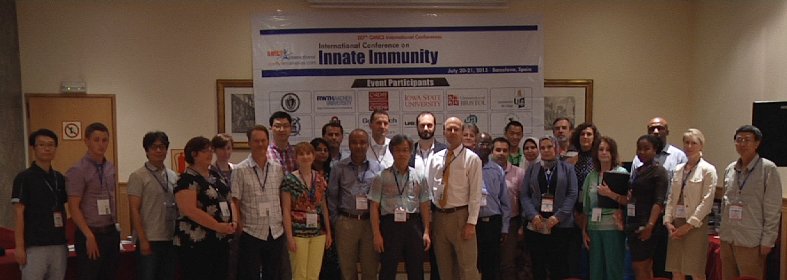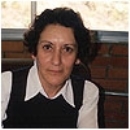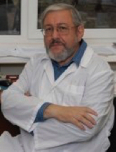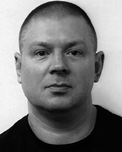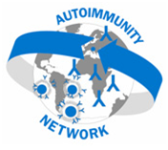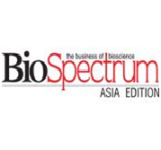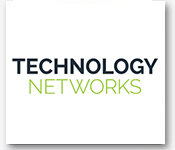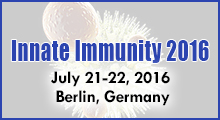Theme: Global Aspects in Innate Immunity: Advancing to the Frontier
Innate Immunity-2016
ConferenceSeries Ltd invites all the participants from all over the world to attend 2nd International Conference on Innate Immunity and Innate Immunity-2016” during July 21-22, 2016 in Berlin, Germany which includes prompt keynote presentations, Oral talks, Poster presentations and Exhibitions.
Innate Immunity-2016 is the learning of how drugs influence cellular function in the nervous system, and the neural mechanisms through which they influence behavior. The studies are more concerned with the interactions of Immune cells like t-cells, b-cells, Lymph nodes, Thymus, Adrenal gland, enzymes, second messengers, co-transporters, ion channels, and receptor proteins in the Immune systems. Advanced studies are being made to improvise developments in drugs to treat numerous diverse Immunological disorders, including Autoimmune diseases known to be diabetes, Graves' disease, inflammatory bowel disease, multiple sclerosis, psoriasis, rheumatoid arthritis, sclerodoma and systemic lupus erythematosus and many more. ConferenceSeries Ltd organizes a conference series of 1000+ Global Events inclusive of 300+ Conferences, 500+ Upcoming and Previous Symposiums and Workshops in USA, Europe & Asia with support from 1000 more scientific societies and publishes 700+ Open access journals which contains over 30000 eminent personalities, reputed scientists as editorial board members.
Why to attend???
With members from around the world focused on learning about Immunology and its advances; this is your best opportunity to reach the largest assemblage of participants from the Immunobilogical community. Conduct presentations, distribute information, meet with current and potential scientists, make a splash with new drug developments, and receive name recognition at this 2-day event. World-renowned speakers, the most recent techniques, developments, and the newest updates in Innate Immunity are hallmarks of this conference.
Target Audience:
- Immunology Students, Scientists
- Immunology Researchers
- Immunology Faculty
- Medical Colleges
- Immunology Associations and Societies
- Business Entrepreneurs
- Training Institutes
- Software developing companies
- Manufacturing Medical Devices Companies
- Immune Therapist
ConferenceSeries Ltd invites all the participants from all over the world to attend “2nd International Conference on Innate Immunity and Immune System Diseases” during July 21-22, 2016 in Berlin, Germany which includes prompt keynote presentations, Oral talks, Poster presentations and Exhibitions.
Innate Immunity-2016 is a global platform to discuss and learn about Innate Immune Disorders and the various Diseases associated, Autoimmune diseases, cancer therapy, Immunotherapy. This esteemed conference aims to bring together academic scientists, leading entrepreneurs, industry researchers and scholars to exchange and explore their experiences, research results about all aspects right from pre and post in Immunology Events. ConferenceSeries Ltd organizes a series of conferences of 1000+ Global Events inclusive of 300+ Conferences, 500+ Upcoming and Previous Symposiums and Workshops in USA, Europe & Asia with support from 1000 more scientific societies and publishes 700+ Open access journals which contains over 30000 eminent personalities, reputed scientists as editorial board members.
Track 1: Innate Immunity
The innate immune system, also known as the nonspecific immune system is an important part of the overall immune system that comprises the cells and mechanisms that defend the host from infection by other organisms. The innate immune system will act as the first line of defense against the invading microbial pathogens and relies on a large family of pattern recognition. Contrary to the adaptive immune system (which is found only in vertebrates), it does not confer long-lasting or protective immunity to the host. Innate immune systems provides immediate defense against the infection, and are found in all classes of living organisms including plant and animal life. They include both humoral immunity components and cell-mediated immunity components.
Related Conferences: 2nd International Congress on Neuroimmunology and Therapeutics March 31-April 02 2016, USA; Autoimmunity Conferences October 13-14, 2016 Manchester, UK, Immunology Conferences October 13-14, 2016 Manchester, UK, Allergy Conferences September 14-15, 2016 Amsterdam, Netherlands, Asthma Events September 14-15, 2016 Amsterdam, Netherlands, Clinical Immunology conferences September 14-15, 2016 Amsterdam, Netherlands, 2n International Conference on Innate Immunity, July 21-22, 2016, Berlin, Germany; European Immunology Conference, July 21-23, 2016, Berlin, Germany; Innate Immunity and Determinants of Microbial Pathogenesis (Z3), USA; Aegean Conference: 7th International Conference on Autoimmunity, Greece; Keystone Symposium: JAK-STAT Signaling in Immunity and Disease, 10–14 JANUARY, USA; Cell Symposia: Human Immunity and the Microbiome in Health and Disease, SEPTEMBER 27–29,Canada; TOLL 2015: Targeting Innate Immunity, 30–3 October, Spain.
Track 2: Immune Response
The immune system protects the body from possibly harmful substances by recognizing and responding to antigens. Antigens are substances (usually proteins) on the surface of cells, viruses, fungi, or bacteria. Nonliving substances such as toxins, chemicals, drugs, and foreign particles (such as a splinter) can also be antigens. The immune system recognizes and destroys substances that contain antigens.
Your body's cells have proteins that are antigens. These include a group of antigens called HLA antigens. Your immune system learns to see these antigens as normal and usually does not react against them.
Immunity is the defense system with which you were born. It protects you against all antigens. Innate immunity involves barriers that keep harmful materials from entering your body. These barriers form the first line of defense in the immune response.
Related Conferences: 2nd International Congress on Neuroimmunology and Therapeutics March 31-April 02 2016, USA; Autoimmunity Conferences October 13-14, 2016 Manchester, UK, Immunology Conferences October 13-14, 2016 Manchester, UK, Allergy Conferences September 14-15, 2016 Amsterdam, Netherlands, Asthma Events September 14-15, 2016 Amsterdam, Netherlands, Clinical Immunology conferences September 14-15, 2016 Amsterdam, Netherlands, 2n International Conference on Innate Immunity, July 21-22, 2016, Berlin, Germany; European Immunology Conference, July 21-23, 2016, Berlin, Germany; Innate Immunity and Determinants of Microbial Pathogenesis (Z3), USA; Aegean Conference: 7th International Conference on Autoimmunity, Greece; Keystone Symposium: JAK-STAT Signaling in Immunity and Disease, 10–14 JANUARY, USA; Cell Symposia: Human Immunity and the Microbiome in Health and Disease, SEPTEMBER 27–29,Canada; TOLL 2015: Targeting Innate Immunity, 30–3 October, Spain.
Track 3: Innate immune evasion
Cells of the innate immune system, in effect, prevent free growth of bacteria within the body; however, many pathogens have evolved mechanisms allowing them to evade the innate immune system.
Evasion strategies that circumvent the innate immune system include intracellular replication, such as in Mycobacterium tuberculosis, or a protective capsule that prevents lysis by complement and by phagocytes, as in salmonella. Bacteroides species are normally mutualistic bacteria, making up a substantial portion of the mammalian gastrointestinal flora. Some species (B. fragilis, for example) are opportunistic pathogens, causing infections of the peritoneal cavity. These species evade the immune system through inhibition of phagocytosis by affecting the receptors that phagocytes use to engulf bacteria or by mimicking host cells so that the immune system does not recognize them as foreign. Staphylococcus aureus inhibits the ability of the phagocyte to respond to chemokine signals. Other organisms such as M. tuberculosis, Streptococcus pyogenes, andBacillus anthracis utilize mechanisms that directly kill the phagocyte.
Related Conferences: 2nd International Congress on Neuroimmunology and Therapeutics March 31-April 02 2016, USA; Autoimmunity Conferences October 13-14, 2016 Manchester, UK, Immunology Conferences October 13-14, 2016 Manchester, UK, Allergy Conferences September 14-15, 2016 Amsterdam, Netherlands, Asthma Events September 14-15, 2016 Amsterdam, Netherlands, Clinical Immunology conferences September 14-15, 2016 Amsterdam, Netherlands, 2n International Conference on Innate Immunity, July 21-22, 2016, Berlin, Germany; European Immunology Conference, July 21-23, 2016, Berlin, Germany; Innate Immunity and Determinants of Microbial Pathogenesis (Z3), USA; Aegean Conference: 7th International Conference on Autoimmunity, Greece; Keystone Symposium: JAK-STAT Signaling in Immunity and Disease, 10–14 JANUARY, USA; Cell Symposia: Human Immunity and the Microbiom e in Health and Disease, SEPTEMBER 27–29,Canada; TOLL 2015: Targeting Innate I mmunity, 30–3 October, Spain.
Track 4: Other species Immunity
Bacteria (and perhaps other prokaryotic organisms), utilize a unique defense mechanism, called the restriction modification system to protect themselves from pathogens, such as bacteriophages. In this system, bacteria produce enzymes, called restriction endonucleases,that attack and destroy specific regions of the viral DNA of invading bacteriophages. Methylation of the host's own DNA marks it as "self" and prevents it from being attacked by endonucleases. Restriction endonucleases and the restriction modification system exist exclusively in prokaryotes.
Invertebrates do not possess lymphocytes or an antibody-based humoral immune system, and it is likely that a multicomponent, adaptive immune system arose with the first vertebrates. Nevertheless, invertebrates possess mechanisms that appear to be precursors of these aspects of vertebrate immunity. Pattern recognition receptors are proteins used by nearly all organisms to identify molecules associated with microbial pathogens. Toll-like receptors are a major class of pattern recognition receptor, that exists in all coelomates (animals with a body-cavity), including humans. The complement system, as discussed above, is a biochemical cascade of the immune system that helps clear pathogens from an organism, and exists in most forms of life. Some invertebrates, including various insects, crabs, and worms utilize a modified form of the complement response known as the prophenoloxidase (proPO) system.
Related Conferences: 2nd International Congress on Neuroimmunology and Therapeutics March 31-April 02 2016, USA; International Conference on Allergy, March 29-30, 2016, Valencia, Spain; 2n International Conference Exhibition on Antibodies, July 14-15, 2016, Philadelphia, USA; 2nd International Conference on Innate Immunity, July 21-22, 2016, Berlin, Germany; Plant Receptor Kinases: From Molecules to Environment, February 8—13, 2015, USA; Plant Molecular Biology Gordon Research Conference July 18-23, 2010, NH; The 3rd Plant Genomics Congress: USA, 14 Sep 2015 → 15 Sep 2015, USA; EMBO conference - Signalling in Plant Development, 20 Sep 2015 → 24 Sep 2015, Czech Republic;3rd international Plant Physiology Congress: Challenges and Strategies in Plant Biology Research, 11 Dec 2015 → 14 Dec 2015, India.
Track 5: Other species Immunity
Bacteria (and perhaps other prokaryotic organisms), utilize a unique defense mechanism, called the restriction modification system to protect themselves from pathogens, such as bacteriophages. In this system, bacteria produce enzymes, called restriction endonucleases, that attack and destroy specific regions of the viral DNA of invading bacteriophages. Methylation of the host's own DNA marks it as "self" and prevents it from being attacked by endonucleases. Restriction endonucleases and the restriction modification system exist exclusively in prokaryotes.
Invertebrates do not possess lymphocytes or an antibody-based humoral immune system, and it is likely that a multicomponent, adaptive immune system arose with the first vertebrates. Nevertheless, invertebrates possess mechanisms that appear to be precursors of these aspects of vertebrate immunity. Pattern recognition receptors are proteins used by nearly all organisms to identify molecules associated with microbial pathogens. Toll-like receptors are a major class of pattern recognition receptor, that exists in all coelomates (animals with a body-cavity), including humans. The complement system, as discussed above, is a biochemical cascade of the immune system that helps clear pathogens from an organism, and exists in most forms of life. Some invertebrates, including various insects, crabs, and worms utilize a modified form of the complement response known as the prophenoloxidase (proPO) system.
Related Conferences: International Conference on Allergy, March 29-30, 2016, Valencia, Spain , 2nd International Congress on Neuroimmunology and Therapeutics March 31-April 02 2016, USA;; 2n International Conference Exhibition on Antibodies, July 14-15, 2016, Philadelphia, USA; 2nd International Conference on Innate Immunity, July 21-22, 2016, Berlin, Germany; European Immunology Conference, July 21-23, 2016, Berlin, Germany; Innate Immunity and Determinants of Microbial Pathogenesis (Z3), USA; Immunity to Veterinary Pathogens: Informing Vaccine Development (A3), USA; Innate Immunity to Viral Infections (J6), January 19—24, 2014, USA; Cell Symposia: Human Immunity and the Microbiome in Health and Disease, SEPTEMBER 27–29,Canada; TOLL 2015: Targeting Innate Immunity, 30–3 October, Spain.
Track 6: Immune System Disorders
Immune system disorders cause abnormally low activity or over activity of the immune system. In cases of immune system over activity, the body attacks and damages its own tissues (autoimmune diseases). Immune deficiency diseases decrease the body's ability to fight invaders, causing vulnerability to infections.
In response to an unknown trigger, the immune system may begin producing antibodies that instead of fighting infections, attack the body's own tissues. Treatment for autoimmune diseases generally focuses on reducing immune system activity.
Related Conferences: Immunology Conferences October 13-14, 2016 Manchester, UK 2nd International Congress on Neuroimmunology and Therapeutics March 31-April 02 2016, USA; Autoimmunity Conferences October 13-14, 2016 Manchester, UK, , Allergy Conferences September 14-15, 2016 Amsterdam, Netherlands, Asthma Events September 14-15, 2016 Amsterdam, Netherlands, Clinical Immunology conferences September 14-15, 2016 Amsterdam, Netherlands, 2n International Conference on Innate Immunity, July 21-22, 2016, Berlin, Germany; European Immunology Conference, July 21-23, 2016, Berlin, Germany; Innate Immunity and Determinants of Microbial Pathogenesis (Z3), USA; Aegean Conference: 7th International Conference on Autoimmunity, Greece; Keystone Symposium: JAK-STAT Signaling in Immunityand Disease, 10–14 JANUARY, USA; Cell Symposia: Human Immunity and the Microbiome in Health and Disease, SEPTEMBER 27–29,Canada; TOLL 2015: Targeting Innate Immunity, 30–3 October, Spain.
Track 7: Cell Mediated Immunity
Cell-mediated immunity is an immune response that does not involve antibodies, but rather involves the activation of phagocytes, antigen-specific cytotoxic T-lymphocytes, and the release of various cytokines in response to an antigen. Historically, the immune system was separated into two branches: humoral immunity, for which the protective function of immunization could be found in the humor (cell-free bodily fluid or serum) and cellular immunity, for which the protective function of immunization was associated with cells. CD4 cells or helper T cells provide protection against different pathogens. Cytotoxic T cells cause death by apoptosis without using cytokines; therefore in cell-mediated immunity cytokines are not always present.
Related Conferences: Autoimmunity Conferences October 13-14, 2016 Manchester , 2nd International Congress on Neuroimmunology and Therapeutics March 31-April 02 2016, USA; , UK, Immunology Conferences October 13-14, 2016 Manchester, UK, Allergy Conferences September 14-15, 2016 Amsterdam, Netherlands, Asthma Events September 14-15, 2016 Amsterdam, Netherlands, Clinical Immunology conferences September 14-15, 2016 Amsterdam, Netherlands, 2n International Conference on Innate Immunity, July 21-22, 2016, Berlin, Germany; Stress And Behavior Neuroscience and Biopsychiatry Conference, May 16-19 2016, Russia; FENS Forum of Neuroscience, July 2-6 2016, Europe; AAPS Annual Meeting, November 12-16 2016, USA; Schizophrenia International Research Society Conference, Italy
Track 8: Neural regulation
The central nervous system (CNS) regulates innate immune responses through hormonal and neuronal routes. The neuroendocrine stress response and the sympathetic and parasympathetic nervous systems generally inhibit innate immune responses at systemic and regional levels, whereas the peripheral nervous system tends to amplify local innate immune responses. These systems work together to first activate and amplify local inflammatory responses that contain or eliminate invading pathogens, and subsequently to terminate inflammation and restore host homeostasis. Here, I review these regulatory mechanisms and discuss the evidence indicating that the CNS can be considered as integral to acute-phase inflammatory responses to pathogens as the innate immune system.
Related Conferences: 2nd International Conference on Innate Immunity, July 21-22, 2016, Berlin, Germany, Immunology Conferences October 13-14, 2016 Manchester, UK , 2nd International Congress on Neuroimmunology and Therapeutics March 31-April 02 2016, USA; Autoimmunity Conferences October 13-14, 2016 Manchester, UK, , Allergy Conferences September 14-15, 2016 Amsterdam, Netherlands, Asthma Events September 14-15, 2016 Amsterdam, Netherlands, Clinical Immunology conferences September 14-15, 2016 Amsterdam, Netherlands, , 2nd World Congress on Breast Cancer, Sept 19-21, 2016, Pheonix, USA; 2nd Annual Oncology Asia, 14 Sep 2015 → 17 Sep 2015, Japan; Cancer Vaccines, 16 Sep 2015 → 17 Sep 2015, United Kingdom;2nd International Symposium of the Cancer Research Center of Lyon, 21 Sep 2015 → 23 Sep 2015, France; 4th International Conference on Immunotherapy in Pediatric Oncology, 25 Sep 2015 → 26 Sep 2015, United States.
Track 9: Inflammation
Inflammation is a biological response to harmful stimuli, such as pathogens, damaged cells or irradiation. It is a protective attempt by the organism to remove injurious stimuli and to initiate the healing process. It is characterized by pain, redness, heat, swelling and disturbance of function. In order to avoid immunopathology, this system is tightly regulated by a number of endogenous molecules that limit the magnitude and duration of the inflammatory response.
The Major signs of acute inflammation include pain, heat, redness, swelling, and loss of function. Inflammation is a generic response, considered as a mechanism of innate immunity, as compared to adaptive immunity, which is specific for each pathogen.
Too little inflammation could lead to progressive tissue destruction by the harmful stimulus (e.g. bacteria) and compromise the survival of the organism. In contrast, chronic inflammation may lead to a host of diseases, such as hay fever, periodontitis, atherosclerosis, rheumatoid arthritis, and even cancer (cancer Immunology). Inflammation is therefore normally closely regulated by the body.
Related Conferences: Allergy Conferences September 14-15, 2016 Amsterdam, Netherlands,2nd International Congress on Neuroimmunology and Therapeutics March 31-April 02 2016, USA; Autoimmunity Conferences October 13-14, 2016 Manchester, UK, Immunology Conferences October 13-14, 2016 Manchester, UK, Asthma Events September 14-15, 2016 Amsterdam, Netherlands, Clinical Immunology conferences September 14-15, 2016 Amsterdam, Netherlands, 2n International Conference on Innate Immunity, July 21-22, 2016, Berlin, Germany; European Immunology Conference, July 21-23, 2016, Berlin, Germany; Innate Immunity and Determinants of Microbial Pathogenesis (Z3), USA; Aegean Conference: 7th International Conference on Autoimmunity, Greece; Keystone Symposium: JAK-STAT Signaling in Immunity and Disease, 10–14 JANUARY, USA; Cell Symposia: Human Immunity and the Microbiome in Health and Disease, SEPTEMBER 27–29,Canada; TOLL 2015: Targeting Innate Immunity, 30–3 October,Spain.
Track 10: Innate Cancer immunology
Cancer immunology is a branch of immunology that studies interactions between the immune system and cancer cells (also called tumors or malignancies). It is a growing field of research that aims to discover innovative cancer immunotherapies to treat and retard progression of the disease. The immune response, including the recognition of cancer-specific antigens, is of particular interest in the field as knowledge gained drives the development of targeted therapy (such as new vaccines and antibody therapies) and tumor marker-based diagnostic tests. For instance in 2007, Ohtani published a paper finding tumour infiltrating lymphocytes to be quite significant in human colorectal cancer. The host was given a better chance at survival if the cancer tissue showed infiltration of inflammatory cells, in particular those prompting lymphocytic reactions. The results yielded suggest some extent of anti-tumour immunity is present in colorectal cancers in humans.
Related Conferences: 2nd International Congress on Neuroimmunology and Therapeutics March 31-April 02 2016, USA; Autoimmunity Conferences October 13-14, 2016 Manchester, UK, Immunology Conferences October 13-14, 2016 Manchester, UK, Allergy Conferences September 14-15, 2016 Amsterdam, Netherlands, Asthma Events September 14-15, 2016 Amsterdam, Netherlands, Clinical Immunology conferences September 14-15, 2016 Amsterdam, Netherlands, 2n International Conference on Innate Immunity, July 21-22, 2016, Berlin, Germany; European Immunology Conference, July 21-23, 2016, Berlin, Germany; Innate Immunity and Determinants of Microbial Pathogenesis (Z3), USA; Aegean Conference: 7th International Conference on Autoimmunity, Greece; Keystone Symposium: JAK-STAT Signaling in Immunity and Disease, 10–14 JANUARY, USA; Cell Symposia: Human Immunity and the Microbiome in Health and Disease, SEPTEMBER 27–29,Canada; TOLL 2015: Targeting Innate Immunity, 30–3 October, Spain.
Track 11: Acquired Immunity
The adaptive immune system, also known as the acquired immune or, more rarely, as the specific immune system, is a subsystem of the overall immune system that is composed of highly specialized, systemic cells and processes that eliminate or prevent pathogen growth. The adaptive immune system is one of the two main immunity strategies found in vertebrates (the other being the innate immune system). Adaptive immunity creates immunological memory after an initial response to a specific pathogen, leads to an enhanced response to subsequent encounters with that pathogen. This process of acquired immunity is the basis of vaccination. Like the innate system, the adaptive system includes both humoral immunity components and cell-mediated immunity components.
Related Conferences: 2nd International Congress on Neuroimmunology and Therapeutics March 31-April 02 2016, USA; Autoimmunity Conferences October 13-14, 2016 Manchester, UK, Immunology Conferences October 13-14, 2016 Manchester, UK, Allergy Conferences September 14-15, 2016 Amsterdam, Netherlands, Asthma Events September 14-15, 2016 Amsterdam, Netherlands, Clinical Immunology conferences September 14-15, 2016 Amsterdam, Netherlands, 2n International Conference on Innate Immunity, July 21-22, 2016, Berlin, Germany; European Immunology Conference, July 21-23, 2016, Berlin, Germany; Innate Immunity and Determinants of Microbial Pathogenesis (Z3), USA; Aegean Conference: 7th International Conference on Autoimmunity, Greece; Keystone Symposium: JAK-STAT Signaling in Immunity and Disease, 10–14 JANUARY, USA; Cell Symposia: Human Immunity and the Microbiome in Health and Disease, SEPTEMBER 27–29,Canada; TOLL 2015: Targeting Innate Immunity, 30–3 October, Spain.
Track 12: Anatomical barriers
Anatomical barriers include physical, chemical and biological barriers. The epithelial surfaces form a physical barrier that is impermeable to most infectious agents, acting as the first line of defense against invading organisms. Desquamation of skin epithelium also helps remove bacteria and other infectious agents that have adhered to the epithelial surfaces. Lack of blood vessels and inability of the epidermis to retain moisture, presence of sebaceous glands in the dermis provides an environment unsuitable for the survival of microbes. In the gastrointestinal and respiratory tract, movement due to peristalsis or cilia, respectively, helps remove infectious agents. Also, mucus traps infectious agents. The gut flora can prevent the colonization of pathogenic bacteria by secreting toxic substances or by competing with pathogenic bacteria for nutrients or attachment to cell surfaces. The flushing action of tears and saliva helps prevent infection of the eyes and mouth.
Related Conferences: 2nd International Congress on Neuroimmunology and Therapeutics March 31-April 02 2016, USA; Autoimmunity Conferences October 13-14, 2016 Manchester, UK, Immunology Conferences October 13-14, 2016 Manchester, UK, Allergy Conferences September 14-15, 2016 Amsterdam, Netherlands, Asthma Events September 14-15, 2016 Amsterdam, Netherlands, Clinical Immunology conferencesSeptember 14-15, 2016 Amsterdam, Netherlands, 2n International Conference on Innate Immunity, July 21-22, 2016, Berlin, Germany, Amsterdam; Society for Neuroscience Annual Meeting, November 12-16 2016, USA; Stress And Behavior Neuroscience and Biopsychiatry Conference, May 16-19 2016, Russia; FENS Forum of Neuroscience, July 2-6 2016, Europe; AAPS Annual Meeting, November 12-16 2016, USA; Schizophrenia International Research Society Conference, Italy.
Track 13: Immunity Vitamins
Vitamins have properties to help fight off a variety of illnesses and protect the body from damage to cells. Many foods contain vitamins that protect the immune system. Although many dietitians recommend getting vitamins from the diet, taking vitamin supplements can be a helpful and easy way to absorb the vitamin into the body if particular foods are not available. Some vitamins have more immune protection power than others.
Getting continuous amounts of vitamin C helps with wound healing. Vitamin C has antioxidant properties to block damage from oxidation that can lead to inflammatory conditions, heart disease and cancer. Vitamin C also protects against toxic chemicals and air irritants. Vitamin D plays vital roles in strengthening immune function and reducing inflammation. The vitamin generally absorbs into the body from sunlight. Many people get enough sun exposure for adequate doses of vitamin D.
Antioxidants are the best vitamins for immune system support. A diet rich in antioxidant vitamins and nutrients can help maintain healthy immunity to help your body to fight off infection. The three major antioxidant vitamins are: beta-carotene (vitamin A), vitamin C, and vitamin E. You’ll find them in colorful fruits and vegetables – especially those with purple, blue, red, orange, and yellow hues. To get the biggest benefits from antioxidants, eat these foods raw or lightly steamed.
Related Conferences: 2nd International Congress on Neuroimmunology and Therapeutics March 31-April 02 2016, USA; Autoimmunity Conferences October 13-14, 2016 Manchester, UK, Immunology Conferences October 13-14, 2016 Manchester, UK, Allergy Conferences September 14-15, 2016 Amsterdam, Netherlands, Asthma Events September 14-15, 2016 Amsterdam, Netherlands, Clinical Immunology conferences September 14-15, 2016 Amsterdam, Netherlands, 2n International Conference on Innate Immunity, July 21-22, 2016, Berlin, Germany, Amsterdam; Society for Neuroscience Annual Meeting, November 12-16 2016, USA; Stress And Behavior Neuroscience and Biopsychiatry Conference, May 16-19 2016, Russia; FENS Forum of Neuroscience, July 2-6 2016, Europe; AAPS Annual Meeting, November 12-16 2016, USA; Schizophrenia International Research Society Conference, Italy.
Track 14: Immune Therapy
Immunotherapy is treatment that uses certain parts of a person’s immune system to fight diseases such as cancer. This can be done in a couple of ways:
Stimulating your own immune system to work harder or smarter to attack cancer cells. Giving you immune system components, such as man-made immune system proteins. Some types of immunotherapy are also sometimes called biologic therapy or biotherapy.
In the last few decades immunotherapy has become an important part of treating some types of cancer. Newer types of immune treatments are now being studied, and they’ll impact how we treat cancer in the future.
Immunotherapy includes treatments that work in different ways. Some boost the body’s immune system in a very general way. Others help train the immune system to attack cancer cells specifically.
Immunotherapy works better for some types of cancer than for others. It’s used by itself for some of these cancers, but for others it seems to work better when used with other types of treatment.
Related Conferences: Immunology Conferences October 13-14, 2016 Manchester, UK , 2nd International Congress on Neuroimmunology and Therapeutics March 31-April 02 2016, USA; Autoimmunity Conferences October 13-14, 2016 Manchester, UK, Allergy Conferences September 14-15, 2016 Amsterdam, Netherlands, Asthma Events September 14-15, 2016 Amsterdam, Netherlands, Clinical Immunology conferences September 14-15, 2016 Amsterdam, Netherlands, 2n International Conference on Innate Immunity, July 21-22, 2016, Berlin, Germany; European Immunology Conference, July 21-23, 2016, Berlin, Germany; Innate Immunity and Determinants of Microbial Pathogenesis (Z3), USA; Aegean Conference: 7th International Conference on Autoimmunity, Greece; Keystone Symposium: JAK-STAT Signaling in Immunity and Disease, 10–14 JANUARY, USA; Cell Symposia: Human Immunity and the Microbiome in Health and Disease, SEPTEMBER 27–29,Canada; TOLL 2015: Targeting Innate Immunity, 30–3 October, Spain.
Track 15: Therapeutic applications
The innate immune system plays an important role systemically and locally in infectious and inflammatory diseases. Vaccines, vaccine adjuvants and anti-inflammatory drugs were developed by understanding mechanisms of the innate immune system and causative factors of infection and inflammatory diseases. Pattern-recognition receptors, such as Toll-like receptors, retinoic acid-inducible gene I (RIG-I)-like helicases and nucleotide-binding oligomerization domain(NOD)-like receptors, and their downstream signals have great potential as targets of therapeutics because they are involved in numerous diseases. Furthermore, proteolytic systems such as autophagy and immunoproteasomes play important roles in the innate immune system, making them potential therapeutic targets also. By taking advantage of the immune system, humankind has made a great effort to develop new therapeutic and preventive medicines. Accordingly, we have reported several studies on the development of vaccines and adjuvant based on novel mechanistic strategies. Additionally, we have elucidated the mechanism underlying an interaction between innate immunity and the endocrine system. This review introduces the possible use of innate immune molecules for the development of immunomodulatory drugs and the involvement of the immune system in endocrine metabolic diseases to discuss future applications of innate immune molecules to therapeutics of various inflammatory diseases.
Related Conferences: Allergy Conferences September 14-15, 2016 Amsterdam, 2nd International Congress on Neuroimmunology and Therapeutics March 31-April 02 2016, USA; Autoimmunity Conferences October 13-14, 2016 Manchester, UK, Immunology Conferences October 13-14, 2016 Manchester, UK, Netherlands, Asthma Events September 14-15, 2016 Amsterdam, Netherlands, Clinical Immunology conferences September 14-15, 2016 Amsterdam, Netherlands, 2n International Conference on Innate Immunity, July 21-22, 2016, Berlin, Germany; Innate Immunity and Determinants of Microbial Pathogenesis (Z3), USA; Aegean Conference: 7th International Conference on Autoimmunity, Greece; Keystone Symposium: JAK-STAT Signaling in Immunity and Disease, 10–14 JANUARY, USA; Cell Symposia: Human Immunity and the Microbiome in Health and Disease, SEPTEMBER 27–29,Canada; TOLL 2015: Targeting Innate Immunity, 30–3 October, Spain.
Track 16: Plant Innate Immunity
Innate immunity is the first line of defence against invading microorganisms in vertebrates and the only line of defence in invertebrates and plants. Plants are invaded by an array of pathogens of which only a few succeed in causing disease. The attack by others is countered by a sophisticated immune system possessed by the plants. The plant immune system is broadly divided into two. microbial-associated molecular-patterns-triggered immunity (MTI) and effector-triggered immunity (ETI). MTI confers basal resistance, while ETI confers durable resistance, often resulting in hypersensitive response. Plants also possess systemic acquired resistance (SAR), which provides long-term defense against a broad-spectrum of pathogens. Salicylic-acid-mediated systemic acquired immunity provokes the defense response throughout the plant system during pathogen infection at a particular site. Trans-generational immune priming allows the plant to heritably shield their progeny towards pathogens previously encountered. Plants circumvent the viral infection through RNA interference phenomena by utilizing small RNAs.
Related Conferences: 2nd International Congress on Neuroimmunology and Therapeutics March 31-April 02 2016, USA; International Conference on Allergy, March 29-30, 2016, Valencia, Spain; 2n International Conference Exhibition on Antibodies, July 14-15, 2016, Philadelphia, USA; 2nd International Conference on Innate Immunity, July 21-22, 2016, Berlin, Germany; Plant Receptor Kinases: From Molecules to Environment, February 8—13, 2015, USA; Plant Molecular Biology Gordon Research Conference July 18-23, 2010, NH; The 3rd Plant Genomics Congress: USA, 14 Sep 2015 → 15 Sep 2015, USA; EMBO conference - Signalling in Plant Development, 20 Sep 2015 → 24 Sep 2015, Czech Republic;3rd international Plant Physiology Congress: Challenges and Strategies in Plant Biology Research, 11 Dec 2015 → 14 Dec 2015, India.
Track 17: Case Studies
In the case study, we describe the effects of a particular individual's concentration/meditation technique on autonomic nervous system activity and the innate immune response. The study participant may be a women or a men or an animal with regard to tolerating extreme cold and hot weather conditions that influence the autonomic nervous system and thereby the innate immune response.
Related Conferences: 2nd International Congress on Neuroimmunology and Therapeutics March 31-April 02 2016, USA; Autoimmunity Conferences October 13-14, 2016 Manchester, UK, Immunology Conferences October 13-14, 2016 Manchester, UK, Allergy Conferences September 14-15, 2016 Amsterdam, Netherlands, Asthma Events September 14-15, 2016 Amsterdam, Netherlands, Clinical Immunology conferences September 14-15, 2016 Amsterdam, Netherlands, 2n International Conference on Innate Immunity, July 21-22, 2016, Berlin, Germany; European Immunology Conference, July 21-23, 2016, Berlin, Germany; Innate Immunity and Determinants of Microbial Pathogenesis (Z3), USA; Aegean Conference: 7th International Conference on Autoimmunity, Greece; Keystone Symposium: JAK-STAT Signaling in Immunity and Disease, 10–14 JANUARY, USA; Cell Symposia: Human Immunity and the Microbiome in Health and Disease, SEPTEMBER 27–29,Canada; TOLL 2015: Targeting Innate Immunity, 30–3 October, Spain.
Track 18: Invitro measurements
Studies that are in vitro (Latin: in glass; often not italicized in English are performed with cells or biological molecules studied outside their normal biological context; for example proteins are examined in solution, or cells in artificial culture medium. Colloquially called "test tube experiments", these studies in biology and its sub-disciplines are traditionally done in test-tubes, flasks, petri dishes etc. They now involve the full range of techniques used in molecular biology such as the so-called omics. Studies that are conducted using components of an organism that have been isolated from their usual biological surroundings permit a more detailed or more convenient analysis than can be done with whole organisms. In contrast, in vivo studies are those conducted in animals including humans, and whole plants.
Examples of in vitro studies include: the isolation, growth and identification of microorganisms; cells derived from multicellular organisms (cell culture or tissue culture); subcellular components (e.g. mitochondria or ribosomes); cellular or subcellular extracts (e.g. wheat germ or reticulocyte extracts); purified molecules (often proteins, DNA, or RNA, either individually or in combination); and the commercial production of antibiotics and other pharmaceutical products.Viruses, which only replicate in living cells, are studied in the laboratory in cell or tissue culture, and many animal virologists refer to such work as being in vitro to distinguish it from in vivo work on whole animals.
Related Conferences: 2nd International Congress on Neuroimmunology and Therapeutics March 31-April 02 2016, USA; Autoimmunity Conferences October 13-14, 2016 Manchester, UK, Immunology Conferences October 13-14, 2016 Manchester, UK, Allergy Conferences September 14-15, 2016 Amsterdam, Netherlands, Asthma Events September 14-15, 2016 Amsterdam, Netherlands, Clinical Immunology conferences September 14-15, 2016 Amsterdam, Netherlands, 2n International Conference on Innate Immunity, July 21-22, 2016, Berlin, Germany, Amsterdam; Society for Neuroscience Annual Meeting, November 12-16 2016, USA; Stress And Behavior Neuroscience and Biopsychiatry Conference, May 16-19 2016, Russia; FENS Forum of Neuroscience, July 2-6 2016, Europe; AAPS Annual Meeting, November 12-16 2016, USA; Schizophrenia International Research Society Conference, Italy.
Innate Immunity- 2016 welcomes attendees, presenters, and exhibitors from all over the world to Berlin, Germany. We are delighted to invite you all to attend and register for the “2nd International Conference on Innate Immunity and Immune System Diseases (Innate Immunity-2016)”which is going to be held during July 21-22, 2016 at Berlin, Germany. The organizing committee is gearing up for an exciting and informative conference program including plenary lectures, symposia, workshops on a variety of topics, poster presentations and various programs for participants from all over the world. We invite you to join us at the Innate Immunity-2016, where you will be sure to have a meaningful experience with scholars from around the world. All the members of Innate Immunity-2016 organizing committee look forward to meet you at Berlin, Germany.
For more details please visit- http://innateimmunity.conferenceseries.com/
Importance and Scope: The innate immune system is the first line of defense against invading pathogens and is particularly important in warding off bacterial and viral infections presenting at the mucosal cell surface. From this primitive immune response, the more sophisticated adaptive immune system was derived. Despite nearly two decades of research directed at inducing adaptive immune responses to HIV, no successful immunological therapy or vaccine has been developed. On the basis of recent observations, it is suggested that instead emphasis should now be placed on the alternative arm of the immune system, the innate immune response. Novel approaches should be developed to elicit this rapidly responding immune activity in HIV infection
A doctor who specializes in Innate Immune System is known as a Immunologist, a chest medicine specialist, a respiratory medicine specialist, a respirologist or a thoracic medicine specialist. nonspecific immune system, is an important subsystem of the overall immune system that comprises the cells and mechanisms that defend the host from infection by other organisms. The cells of the innate system recognize and respond to pathogens in a generic way, but, unlike the adaptive immune system (which is found only in vertebrates), it does not confer long-lasting or protective immunity to the host. Innate immune systems provide immediate defense against infection, and are found in all classes of plant and animal life. They include both humoral immunity components and cell-mediated immunity components.
Why Berlin?
Berlin is one of the best cities to organize an international conference on Satellite. The research work going on in the field is in a good range when compared to the other cities. Berlin is the fastest growing city in the Germany with an excellent economic growth. Several of the College of Technology degree programs are offered at University of Berlin satellite campuses.
The location is continuously focusing on a R&D-oriented, technology-driven Research industry. Berlin’s industry is at the forefront of innovation with 3.6 percent of the GNP, Berlin makes the second highest investment in research and development in the country. About 61 percent of R&D spending goes to the very pronounced publicly funded and university research landscape. Industry receives about a 27-percent share. Berlin is unique in that science as a resource is available to industrial companies in a highly compact manner and offers companies excellent cooperation opportunities. Berlin is Germany’s top tourist city destination. It is a great city to visit, mixing venues of historical interest with exciting recreation and entertainment opportunities. Alongside its major historical sites, Berlin offers a diverse range of top attractions – world famous buildings, museums, city parks, cabaret theatres, festivals and of course plenty of shopping opportunities. Innate Immunity -2016 Conference at Berlin will certainly give a wonderful experience to attendees to explore the beautiful city with gaining knowledge.
Conference Highlights:
Ø Innate Immunity
Ø Immune Response
Ø Innate immune evasion
Ø Other species Immunity
Ø Innate Molecular immunology
Ø Immune System Disorders
Ø Cell Mediated Immunity
Ø Neural regulation
Ø Inflammation
Ø Innate Cancer immunology
Ø Acquired Immunity
Ø Anatomical barriers
Ø Immunity Vitamins
Ø Immune Therapy
Ø Therapeutic applications
Ø Plant Innate Immunity
Ø Case Studies
Ø Invitro measurements
Conference Highlights
- Innate Immunity
- Cell Mediated Immunity
- Plant Innate Immunity
- Inflammation
- Case Studies
- Other species Immunity
- Neural regulation
- Therapeutic applications
- Innate Cancer immunology
- Acquired Immunity
- Innate Molecular immunology
- Invitro measurements
- Anatomical barriers
- Innate immune evasion
- Immune System Disorders
- Immune Response
- Immunity Vitamins
- Immune Therapy
To share your views and research, please click here to register for the Conference.
To Collaborate Scientific Professionals around the World
| Conference Date | July 21-22, 2016 | ||
| Sponsors & Exhibitors |
|
||
| Speaker Opportunity Closed | Day 1 | Day 2 | Day 3 |
| Poster Opportunity Closed | Click Here to View | ||
Useful Links
Special Issues
All accepted abstracts will be published in respective Our International Journals.
Abstracts will be provided with Digital Object Identifier by


